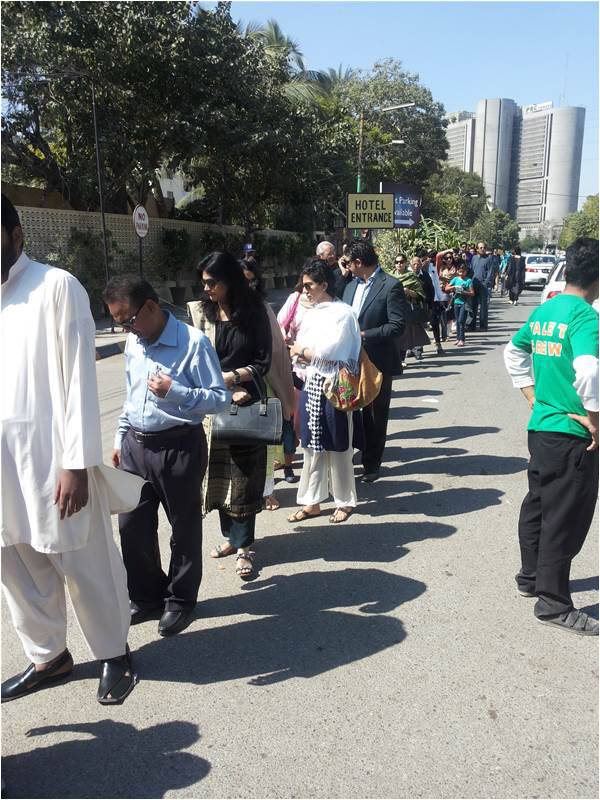
“So many books, so little time.”
– Frank Zappa
I love nippy air and golden sunshine. Days when we have both are very rare in Karachi. And if there is also a sense of freedom, witty conversations, heated debates and a generous exchange of ideas, then it’s nothing but heaven. And the Karachi Literature Festival (KLF) creates this heaven every year.
Being amidst thousands of people who still yearn for the written word gives a pleasant reassurance that in this dark age of shrinking attention spans booklovers are increasing and reading still hasn’t become a relic of the past.
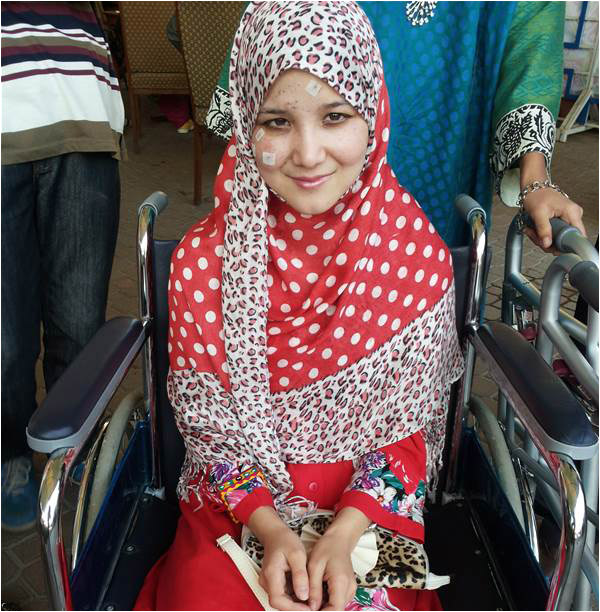
I love KLF more for its electrifying, charged environment than the sessions it offers. It’s a place where all societal, social, religious and political censors seem to disappear and one gets to hear chunks of conversations on all possible topics under the sun: ranging from atheism to local and international politics, deteriorating values and the decline of culture, the rise of technology to lack of art movements, from quality of writing to the parenting and sexual repression; you name the topic and it is discussed at KLF — of course, outside sessions.
Literature Festivals have propelled writers into stardom, turning them into celebrities, though for the hordes of media crews regular entertainment industry professionals are still the centre of attraction.
Television crews vied for Bushra Ansari’s attention who was talking to Intezar Hussain. Bushra introduced herself as his friend Ahmed Bashir’s daughter, to which the startled Intezar sahab replied: “Tum kitni chhoti hogayee ho.”
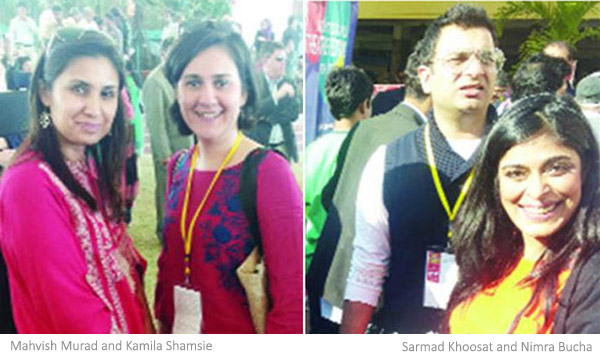
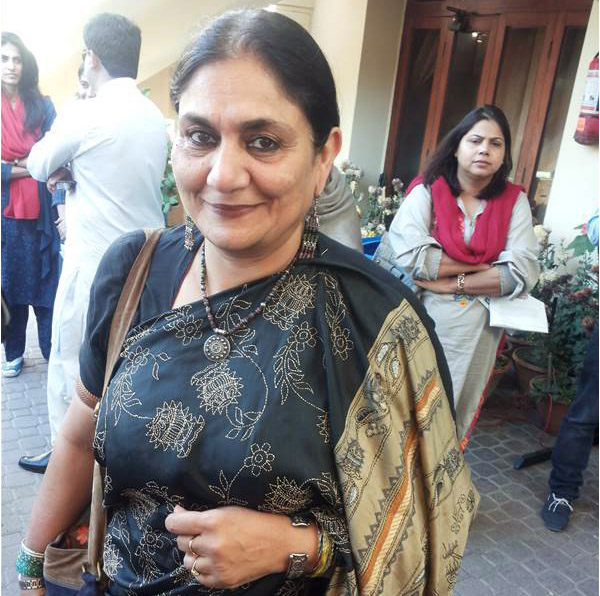
Madeeha Gauhar, in gorgeous kaantha sari was marveling at a few youngsters’ hairdos. She asked them if they are not harassed at the university they go to. Upon receiving the reply in negative, she said: “Well, that is the good thing about Karachi. If it were Punjab University the Jamiat would trouble you a lot.”
On the food front, (ironically) bun kebabs became the hottest selling item in the food court, an item I also survived on all the days I attended.
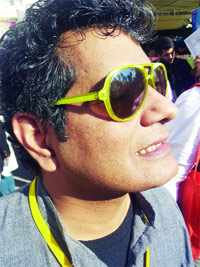
neon-yellow glasses
Mohammad Hanif, in neon yellow shades, arrived with his talented actor wife Nimra, and Sarmad Khoosat. Nimra gladly posed for me but I had to steal a click of Hanif’s who was almost mobbed by fans and friends.
Hanif’s session with Aliya Iqbal got laughter, bred ideas, made the audience think and generated a couple of stupid questions. One of them was: “According to liberals, Pakistan’s future is supposed to be secular. If that’s correct then what will be the difference between Pakistan and India as we are an ideological state?” No guesses that it was asked in English and the questioner was a young, seemingly upper middle class chap.
Similarly, a Pakistani novelist’s admission that while writing she has to maintain a balancing act reminded me of the most uttered line in our society – ‘loag kya kahain ge’.
But then there were some who proved to be a breath of fresh air. Owais introduced me to writer Julien Colmeau who has written three novellas in Urdu. His no-holds-barred psychoanalysis of a development sector personality and his explicit,psycho-sexual question delivered in a dead-pan manner came as a refreshing surprise.
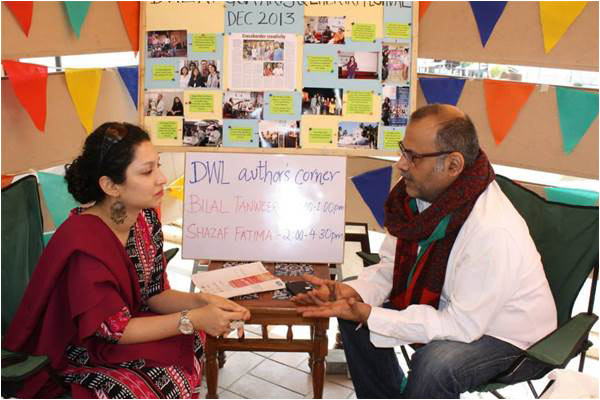
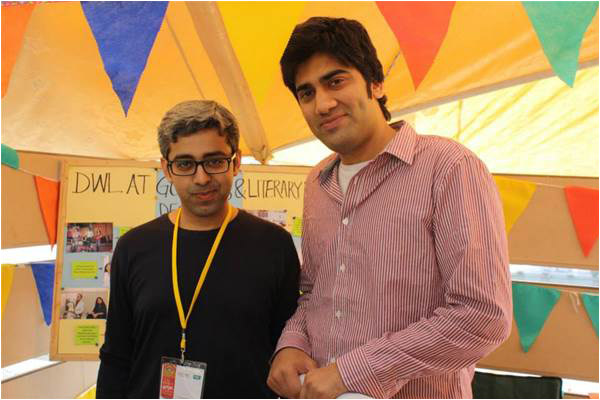
Ambassador Richard Olson discussed with Ishrat Hussain whether the US-Pakistan relationship will endure. Of course, in true imperial he ate into Beo Zafar’s time who was supposed to have a stand-up comedy session in the same hall, disregarding hundreds of people waiting outside.
It’s only an occasion like a literature or arts festival when you see Sadeqa Salahuddin, Taj Haider, Samina Ahmed and Intezar Hussain sitting on the same table sharing jokes, while people milled around them for autographs and photographs. Zehra Nigah and Asma Jehangir, two iconic figures on Pakistan’s feminist landscape, both having done a great deal for Pakistani feminist causes from different platforms, talked about women’s struggles. Mehmood Jamal was spotted deeply immersed in conversation with plastic surgeon Dr. Jawad of Sharmeen Obaid’s Oscar-winning Saving Face fame. Shazaf Fatima used her charms as a writer and her lovely personality to guilt-trip people into buying Afia Aslam’s literary magazine Paper Cuts. Shazaf also shared many inside news about the literary world’s dynamics and politics that would make for a very juicy novel. I immediately stored them in my long term memory section. One day!
Lawyer, activist and young independent politician Jibran Nasir brought Mehrin Kauser, a survivor of the recent Mastung massacre. It was truly inspiring to meet Mehrin. Sitting in a wheelchair, she smiled and absorbed the hustle bustle around her.
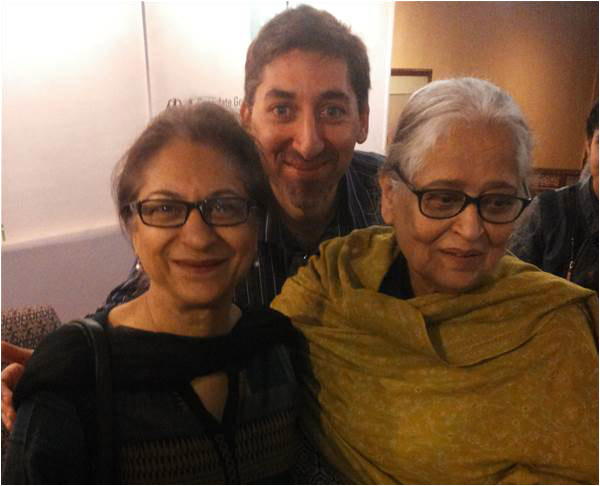
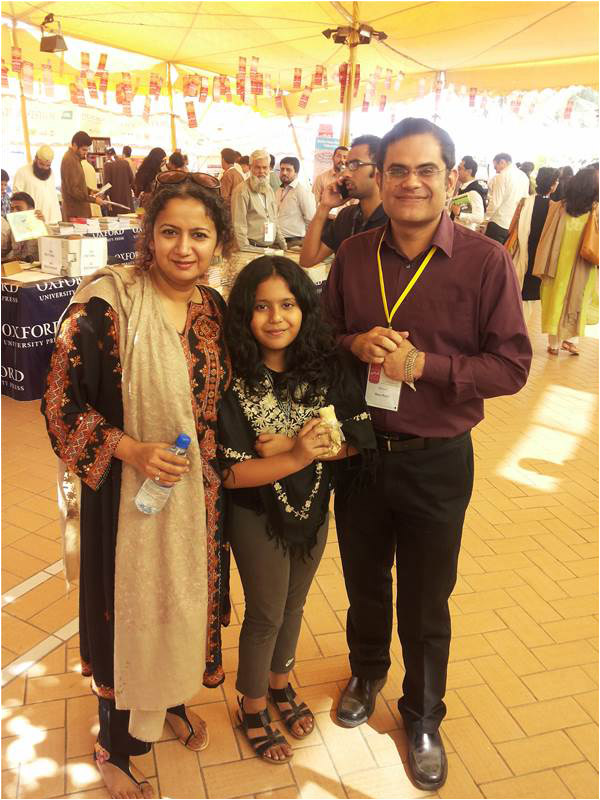
Raza Rumi was busy being a celebrity anchor and writer. You just can’t talk to him uninterrupted for two minutes given his huge fan following and network. Everybody wants to talk to Raza. RJ and book reviewer Mahvish Murad who conducts a book show on FM 89 was intrigued as to why I was taking so many pictures with my phone. First two days she avoided being photographed then on the final day I nabbed her with a radiant looking Kamila Shamise—both in red. When someone said referring to me, that I generally hate all novels by Pakistani writers, Kamila corrected: “Mohsin hates most novels and all Muslims.” I couldn’t agree with her more.
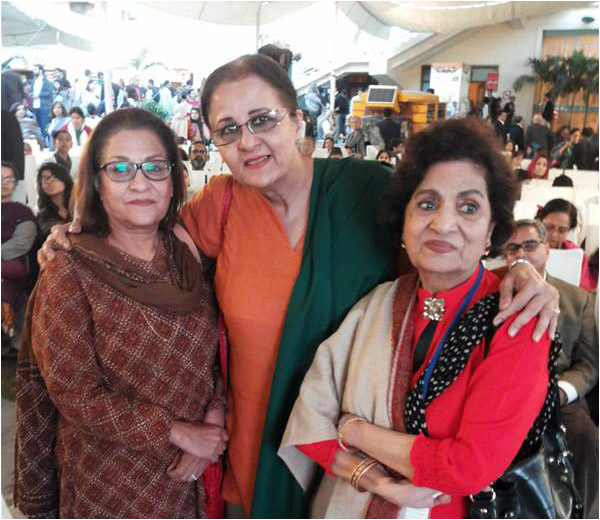
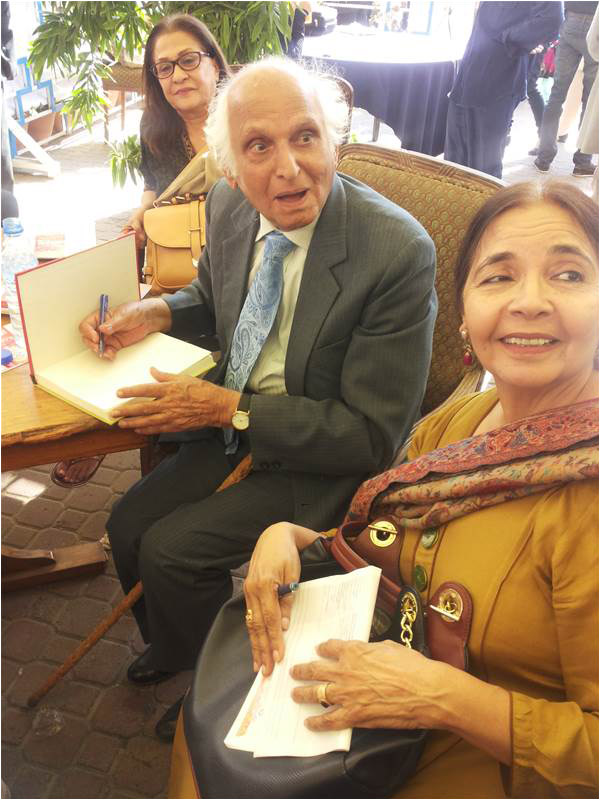
Taimur Rehman of Laal Band stood out in his signature red shirt. I imposed upon him by foisting upon him an aspiring singer and Taimur very kindly took his audition in a relatively quiet corner and gave him suggestions on how to improve and continue singing. Taimur loves the Karachi Literature Festival. “It’s so diverse in terms of discussions and audiences. You get to hear all sorts of opinions and voices and get to see a variety of people, he said. He finds KLF extremely egalitarian, democratizing and a class-leveler. “Here, the freedom of expression is alive and kicking. It offers a glimpse of the environment that we crave for and the whole of Pakistan should ideally have.”

